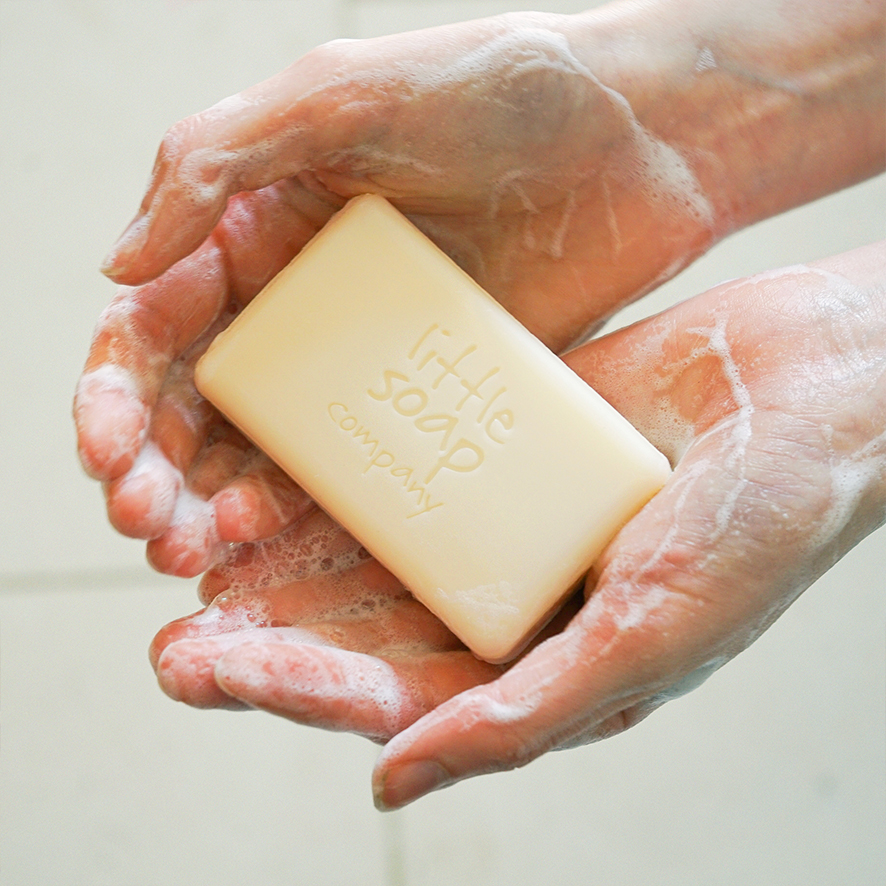The Importance of Sustainable Hygiene
Sustainable hygiene is a key aspect of preserving our environment. It refers to choosing products and practices that have minimal ecological impact. With increasing environmental challenges, it’s crucial to adopt sustainable habits. This includes using eco-friendly hand soap.
Using eco-friendly hand soap reduces harmful chemicals in wastewater. Traditional soaps may contain substances that damage water ecosystems. Sustainable options prioritize natural, biodegradable ingredients. By making this choice, you actively protect aquatic life and water quality.
Beyond environmental health, sustainable hygiene supports human health. Eco-friendly hand soaps often avoid harsh chemicals found in regular soaps. These can lead to skin irritation or other health issues. Choosing eco-friendly options can be kinder to your skin and overall well-being.
The production of eco-friendly hand soaps also matters. Companies that create them usually follow ethical manufacturing processes. They tend to reduce energy consumption and waste generation. This approach helps conserve resources and lessen industrial pollution.
Embracing sustainability in hygiene routines also fosters greater awareness. When people use eco-friendly products, they become more conscious of their daily impact. This awareness can extend to other lifestyle choices, benefiting the environment more broadly.
Finally, sustainable hygiene sets a positive example for others. It shows a commitment to protecting our planet for future generations. Using eco-friendly hand soap is a simple, yet powerful, step. It can inspire friends, family, and communities to make greener choices in their lives.
Eco-Friendly Hand Soap Ingredients to Look For
When shopping for eco-friendly hand soap, key ingredients are crucial to consider. Choose products with natural and biodegradable elements. These ingredients have low environmental impact and are safe for aquatic life. Here’s what to look for:
- Plant-Based Oils: Look for soaps made with oils like coconut, olive, or almond. These oils are gentle on your skin and the environment.
- Essential Oils: Essential oils provide natural scents without harmful chemicals. They also have therapeutic properties.
- Aloe Vera: Aloe vera is soothing and moisturizing, making it perfect for hand soap.
- Glycerin: This ingredient is a natural humectant. It helps retain moisture in the skin.
- Natural Exfoliants: Ingredients like oatmeal or sea salt can gently exfoliate the skin.
Avoid soaps with synthetic fragrances, parabens, and sulfates. These can harm water systems and your health. By choosing hand soaps with friendly ingredients, you support sustainable hygiene. This is better for the planet and your well-being.
Benefits of Using Eco-Friendly Hand Soaps
When choosing eco-friendly hand soaps, the benefits go beyond personal hygiene. There are several advantages to consider that have great impact on both your health and the environment.
- Reduced Environmental Toxins: These soaps have natural ingredients that break down easily. They are less likely to harm wildlife or pollute water systems when compared to traditional soaps.
- Healthy Skin Care: Eco-friendly hand soaps often skip harsh chemicals that can dry out or irritate skin. They use natural moisturizers like glycerin and aloe vera to keep skin healthy.
- Minimized Allergy Risk: Without synthetic fragrances or parabens, eco-friendly soaps reduce the chance of allergies. Natural oils and extracts offer pleasant scents instead.
- Energy and Resource Conservation: Many eco-friendly soap brands focus on sustainable production. They use renewable resources and energy-saving processes.
- Educational Value: Using eco-friendly products educates others on sustainable living. It shows a commitment to health and the environment.
- Support for Ethical Practices: Brands making eco-friendly soaps often support fair trade and ethical sourcing. Your purchase can contribute to better business standards globally.
By using eco-friendly hand soap, you embrace a lifestyle that values sustainability. It’s a simple switch with long-lasting positive effects for both ourselves and the planet.
Top Eco-Friendly Hand Soap Brands
Choosing eco-friendly hand soap is a key step in sustainable hygiene. Let’s highlight some top brands that offer quality, eco-friendly options:
- Dr. Bronner’s: A leader in organic soap, Dr. Bronner’s uses pure-castile soap with organic oils. Their products are biodegradable.
- Method: Method provides a variety of hand soaps with naturally derived ingredients. They focus on biodegradable formulas and recyclable packaging.
- Seventh Generation: Committed to plant-based products, Seventh Generation offers hand soaps free from synthetic fragrances, dyes, and triclosan.
- Ecover: This brand creates soaps with ingredients from renewable plant sources. Their production strives to be sustainable.
- Mrs. Meyer’s: Mrs. Meyer’s hand soaps include essential oils and are free from harsh chemicals. They emphasize cruelty-free practices.
- Common Good: They offer refillable hand soaps to reduce plastic waste. Their products are made with gentle, plant-based ingredients.
These brands stand out for their commitment to the environment and your health. When you choose their hand soaps, you support their mission for a cleaner planet. You also take a step toward safer, more natural skincare. Remember, the choice of hand soap matters not just for personal cleanliness but also for the overall health of our ecosystems.
DIY Eco-Friendly Hand Soap Recipes
Incorporating eco-friendly practices into daily life extends to making your own hand soap.
Creating your own eco-friendly hand soap at home is both satisfying and environmentally responsible. The process is simple, cost-effective, and allows for customization to suit your preferences. Here are a few DIY recipes that use natural and readily available ingredients:
- Basic Liquid Soap: Mix castile soap with distilled water at a ratio of 1:2. Add a few drops of your favorite essential oil for scent, such as lavender or citrus, and a teaspoon of vitamin E oil for extra nourishment.
- Aloe Hand Soap: Combine pure aloe vera gel with liquid castile soap in equal parts. Aloe vera softens and soothes skin, making it a great base for hand soap.
- Herbal Hand Soap: Steep herbs like rosemary or mint in boiling water and let it cool. Strain the liquid and mix with unscented castile soap. This herbal infusion offers a natural and refreshing scent.
- Oatmeal Exfoliating Soap: For a gentle exfoliant, add finely ground oatmeal to a base of liquid castile soap. Oatmeal not only exfoliates but also hydrates and calms the skin.
Remember to store your homemade eco-friendly hand soap in reusable dispensers. Glass or metal containers can be refilled and help reduce plastic waste. By opting for DIY hand soap recipes, you minimize your carbon footprint while enjoying a product free from harsh chemicals. Choosing to craft your own hand soap supports sustainable hygiene and aligns with the ethos of protecting our environment and health.
The Impact of Packaging on Sustainability
When discussing eco-friendly hand soaps, we cannot overlook packaging. Packaging plays a huge role in sustainability. Most soaps come in plastic bottles, which can contribute to pollution. The choice of packaging materials and design is critical.
- Plastic Waste: Traditional plastic containers often end up in landfills, not decomposing for centuries.
- Recyclable Materials: Opt for soaps in recyclable packaging to help reduce waste.
- Biodegradable Options: Some brands use biodegradable materials that break down without harming the environment.
- Bulk Buying: Buying in bulk or using refill stations can minimize packaging use altogether.
- Design Efficiency: Efficient package design uses less material and helps reduce the carbon footprint.
By considering the packaging of your eco-friendly hand soap, you make a broader impact. You contribute to less waste and support sustainable packaging innovations. Each time you purchase hand soap, think about the packaging. Is it recyclable? Can it be reused or refilled? These are vital questions for sustainable hygiene.
Making informed decisions about packaging ensures that our eco-conscious efforts go beyond the product itself. It strengthens our commitment to a healthier planet. Just as the ingredients of hand soap matter, so does the way it is packaged and delivered. Remember, sustainable choices in every aspect turn individual actions into collective progress for the environment.
How to Choose the Right Eco-Friendly Hand Soap
When selecting the right eco-friendly hand soap, several factors come into play. Here’s a straightforward guide to making a wise choice for both you and the planet:
- Read Labels Carefully: Look for key terms like ‘biodegradable’, ‘organic’, and ‘plant-based’. Avoid products with unclear ingredients.
- Check Certifications: Certifications from reputable organizations can indicate a product’s sustainability. Look for labels such as ‘USDA Organic’ or ‘Green Seal’.
- Assess Ingredients Impact: Ensure the ingredients do not contain harsh chemicals detrimental to water systems.
- Consider Sourcing: Choose brands that source ingredients ethically and sustainably.
- Packaging Matters: Opt for soaps in recyclable or compostable packaging. Minimize waste whenever possible.
- Company Policies: Support companies that have clear environmental commitments. Check if they use renewable energy or engage in fair trade practices.
- Scent and Skin Sensitivity: Decide which natural scents you prefer and ensure they are derived from genuine sources. If skin sensitivity is a concern, seek soaps with minimal and gentle ingredients.
By being vigilant about these aspects, you can find a hand soap that aligns with your personal and environmental values. Always remember, choosing the right eco-friendly hand soap not only improves your health but also contributes significantly to environmental conservation.
The Future of Hygiene: Innovations in Sustainability
As we look ahead, the future of hygiene promises exciting sustainability innovations. Scientists and companies are developing new ways to ensure hygiene products, like hand soap, are even more eco-friendly. These advancements aim to protect our planet while providing safe, effective cleanliness options. Here’s what to expect in the arena of sustainable hygiene:
- Green Chemistry: Future hand soaps may involve green chemistry. This means using non-toxic, renewable ingredients in soap production to create a smaller environmental footprint.
- Water-Saving Products: New hand soaps could require less water to rinse away, saving a precious resource and reducing water bills.
- Eco Packaging: Advances in bioplastics and other materials might lead to packaging that breaks down quickly and safely in the environment.
- Refill Innovations: We might see more companies adopting refill systems, with permanent dispensers and easy, mess-free refills to cut down on plastic waste.
- Energy-Efficient Manufacturing: Expect production processes that use renewable energy, like solar or wind power, lessening the impact on the planet.
- Waste Water Treatment: Soaps may be designed to not only be biodegradable but also to improve the water quality as they wash down the drain.
- Local Production: To reduce carbon emissions from transportation, there could be a rise in locally produced soaps using regional ingredients.
These future developments will require the collective efforts of consumers, businesses, and policymakers. By choosing eco-friendly hand soap today, you are part of a movement that encourages the hygiene industry to innovate sustainably. Each purchase is a step towards a cleaner, greener future for all.



